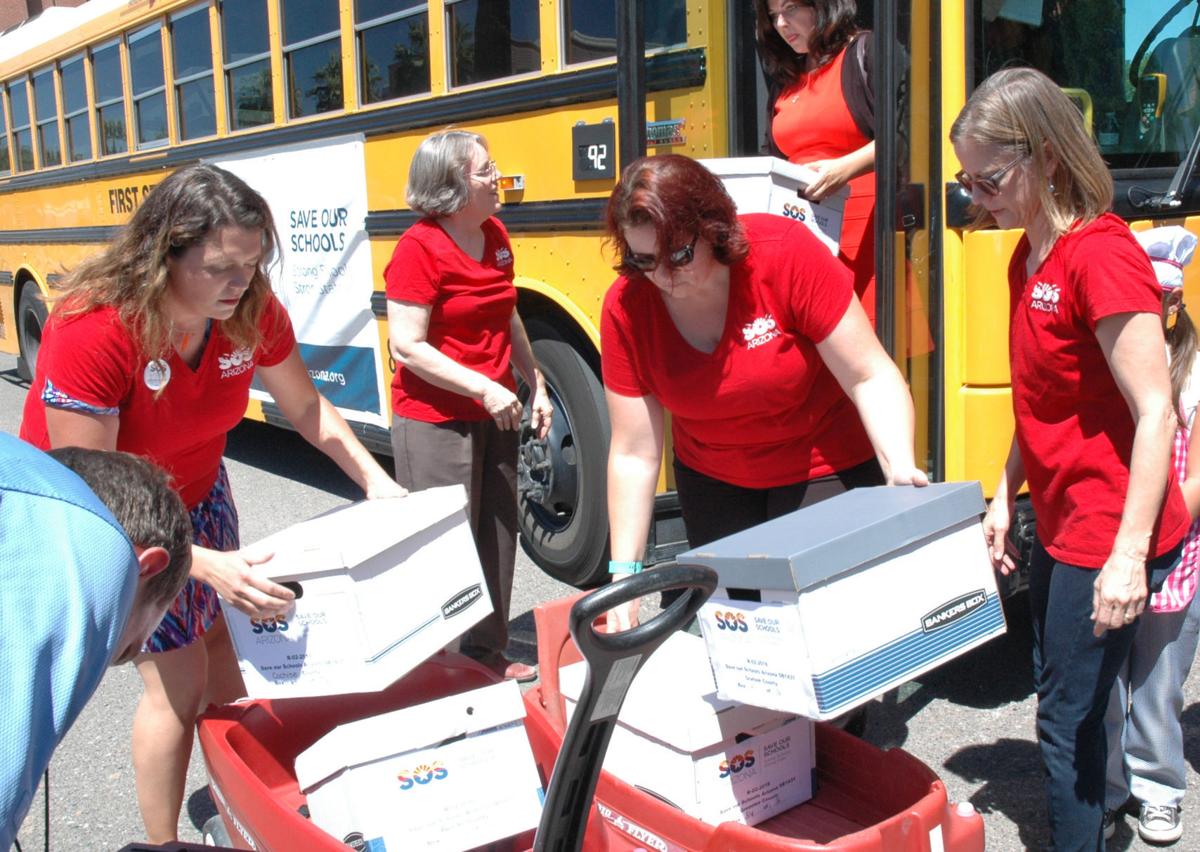PHOENIX — Foes of universal school vouchers told a judge Friday she cannot consider a challenge brought by those who want to keep voters from getting the last word on the plan.
Roopali Desai, attorney for the foes, told Maricopa County Superior Court Judge Margaret Mahoney that the lawsuit to kill the referendum is based on claims that there are a variety of flaws in the petitions and therefore insufficient signatures to put the issue on the 2018 ballot.
But Desai, representing Save Our Schools Arizona, said even if what challengers claim is true — a point she does not concede — it really does not matter.
She pointed out that the challenge to the referendum was filed by two individuals. But the longstanding Arizona law allowing individuals to challenge petitions was repealed by lawmakers in 2015.
Desai acknowledged that lawmakers did vote earlier this year to restore that right.
She noted, though, the effective date of that law was Aug. 9. She said Save our Schools started its petition drive on May 11 and submitted signatures to Secretary of State Michele Reagan on Aug. 8 — all during the time when there was no right of individuals to challenge petitions.
“This court does not have jurisdiction to hear the claims before it,” she told the judge. And that, Desai argued, means the challenge fails and the issue goes on the 2018 ballot.
Attorney Kory Langhofer, representing those who support universal vouchers — and who do not want a public vote — urged Mahoney to say the law that applies is the one in effect on Aug. 23, the day the challenge was filed. And by that point, there was once again a right of individuals to sue.
Moreover, he told the judge that the Legislature voted to reinstate the right of individuals to sue before it approved expansion of the voucher program, the legislation at issue. A ruling is expected within 60 days. Whichever side loses is virtually certain to appeal.
If Mahoney allows the lawsuit to continue, that does not mean the referendum will be removed from the ballot. She would first have to accept Langhofer’s argument that there are not enough valid signatures.
Hanging in the balance is whether voters get to decide if there will be a big expansion in who is eligible to get a voucher of state funds to attend private and parochial schools.
About 3,500 children now get such vouchers.
A law approved earlier this year by the Republican-controlled Legislature eliminates eligibility barriers but places a cap of 30,000 vouchers by 2023.





